If you've received a letter requesting accommodations for allergies, responding thoughtfully is crucial. Acknowledge the importance of their health needs while ensuring your support and commitment to creating a safe environment. Your response should clearly outline the steps you will take to address their concerns, fostering an open dialogue for any further questions or adjustments they might need. To explore how to craft a thoughtful reply that emphasizes understanding and collaboration, keep reading!
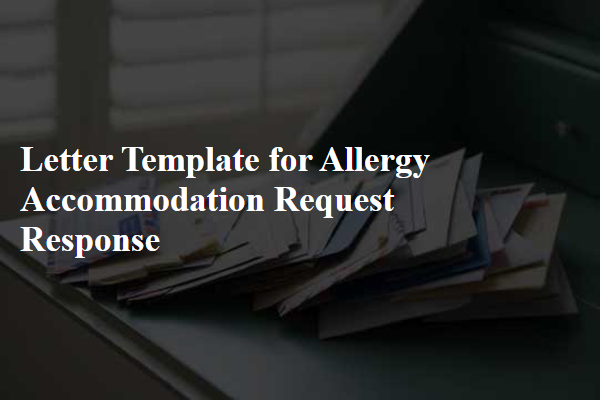
Acknowledgment of Request
In acknowledgment of a request for allergy accommodations, professional organizations often ensure a thorough review of pertinent medical documentation, which details specific allergens that pose risks to individuals. These allergens, which may include common triggers such as peanuts, tree nuts, dairy, or gluten, require careful consideration, especially within environments like schools, workplaces, or public venues. The review process typically engages relevant stakeholders, such as human resources (HR) or the health services department, to develop tailored plans that address safety concerns and promote inclusivity. Effective communication regarding these accommodations is crucial to foster understanding and cooperation, ensuring the individual's well-being while maintaining compliance with regulations such as the Americans with Disabilities Act (ADA).
Detailed Evaluation Process
An allergy accommodation request response involves a comprehensive evaluation process to ensure safety and well-being. This process typically begins with the submission of a formal request outlining specific allergies, such as pollen, nuts, or pet dander, along with documented medical proof from a certified healthcare professional. The evaluation may include a review by an accommodation committee, consisting of representatives from human resources, occupational health, and legal departments, ensuring compliance with regulations like the Americans with Disabilities Act. Environmental assessments of the workplace or learning environment, including air quality tests or allergen presence checks, may be conducted. Recommendations for alterations, such as air filtration systems, designated allergen-free zones, or flexible scheduling to avoid peak allergen seasons, are usually developed. Follow-up meetings may be arranged to discuss the effectiveness of implemented accommodations and continue supporting the individual's needs.
Clear Response and Decision
In response to your request regarding allergy accommodations, we acknowledge the importance of providing a safe and comfortable environment. Based on our review, we have implemented specific measures to accommodate your needs effectively. Allergen-free zones will be established in shared areas, ensuring the exclusion of common allergens such as nuts and dairy. Regular training sessions will be conducted for staff to enhance awareness and maintain vigilance in preventing cross-contamination. Furthermore, we will provide allergen-free menu options in our dining facilities, aligning with safety protocols. Thank you for your understanding, and we are committed to supporting your health and well-being during your time here.
Available Support and Resources
Allergy accommodations are essential for individuals with specific sensitivities, such as food allergies or environmental triggers. An allergy management plan may include resources like allergen-free meal options, designated allergy-friendly zones, and immediate access to emergency medical supplies, including epinephrine auto-injectors like EpiPens. Facilities such as schools (e.g., Jefferson Middle School) or workplaces (e.g., ABC Corporation) often provide training for staff on allergy awareness and response procedures. Support groups in local communities facilitate sharing experiences and strategies for coping with allergies, while national organizations like Food Allergy Research & Education (FARE) offer extensive educational resources and advocacy initiatives to promote safer environments for individuals with allergies.
Contact Information for Further Assistance
For individuals seeking allergy accommodation, it's essential to provide clear contact information for further assistance. This may include specific departments such as Human Resources (HR) or the Office of Disability Services, located at the main campus of XYZ University. The HR phone number is (123) 456-7890, available during business hours from 9 AM to 5 PM, Monday through Friday, while emails can be directed to hr@xyzuniv.edu. Additionally, the website www.xyzuniv.edu/allergy-help offers resources and guidelines on navigating accommodations for allergies. It's crucial to ensure communication with appropriate personnel to address concerns effectively.

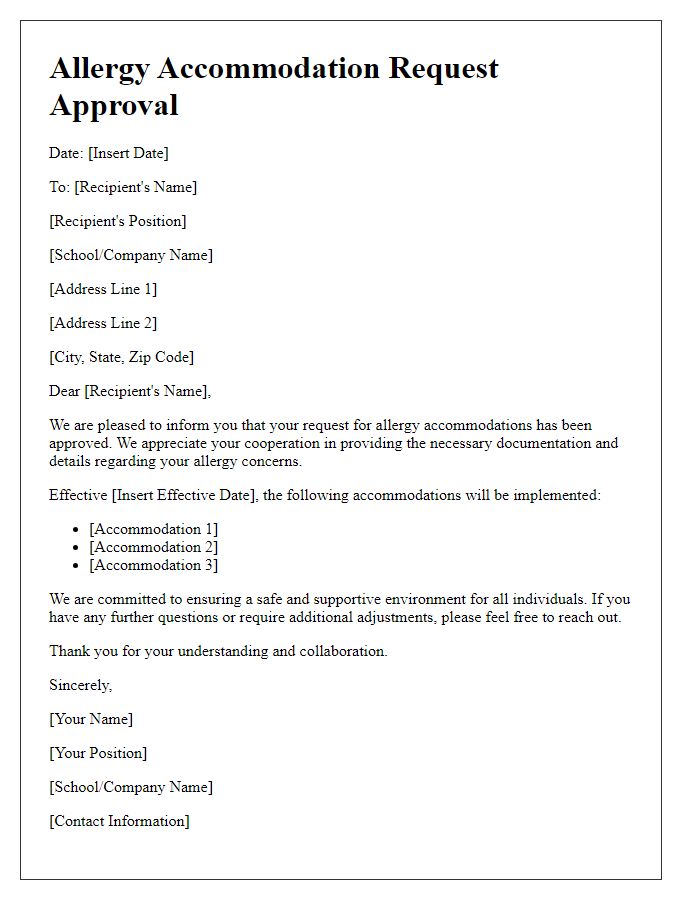
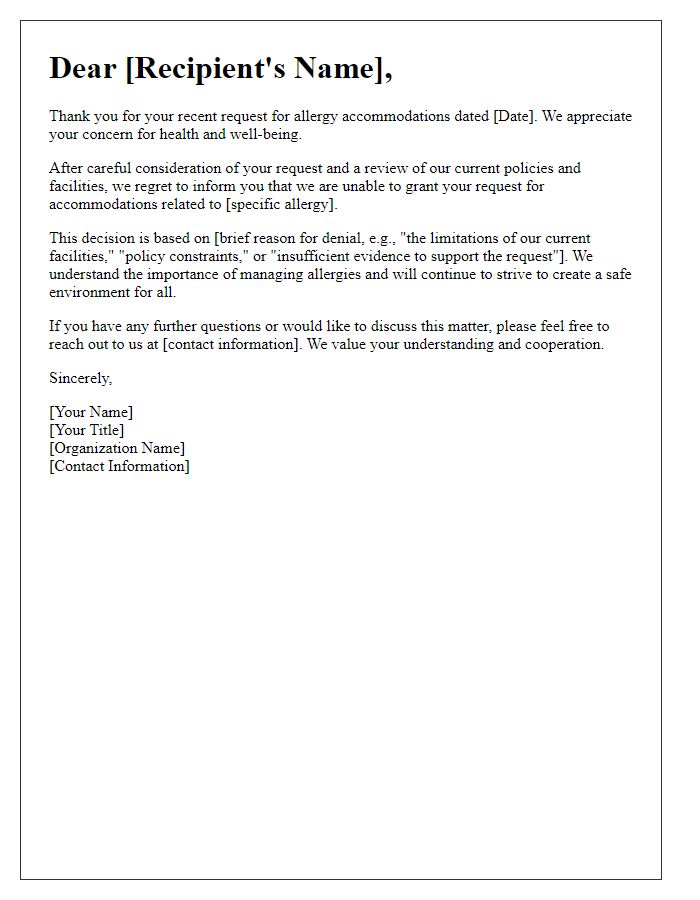
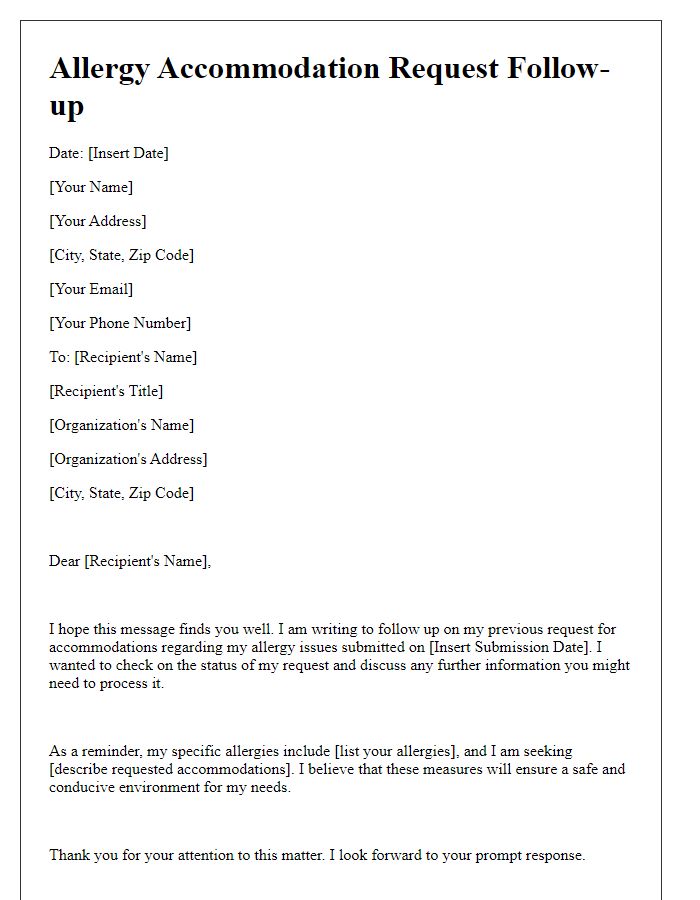
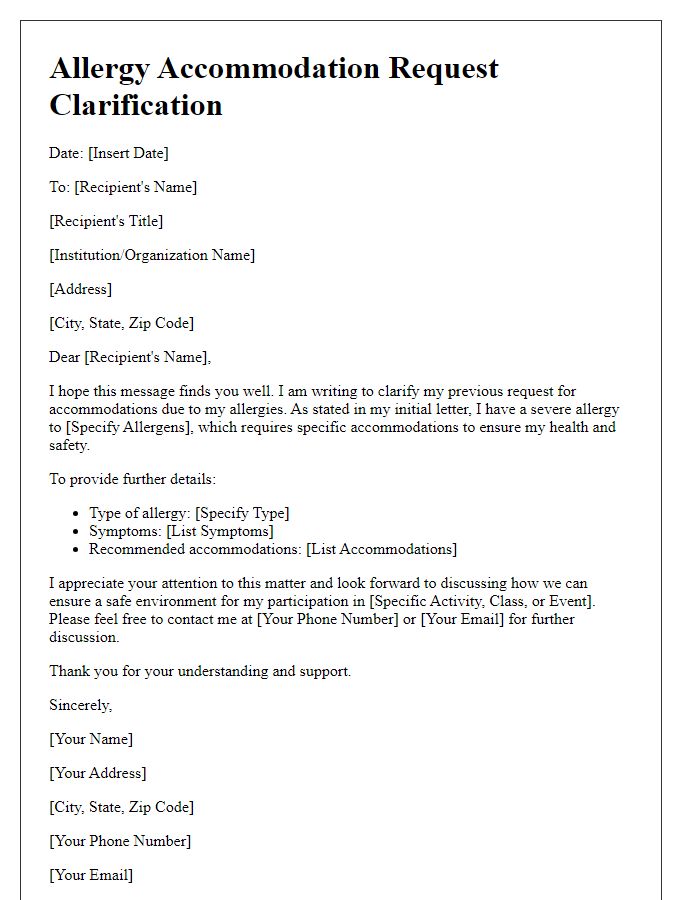
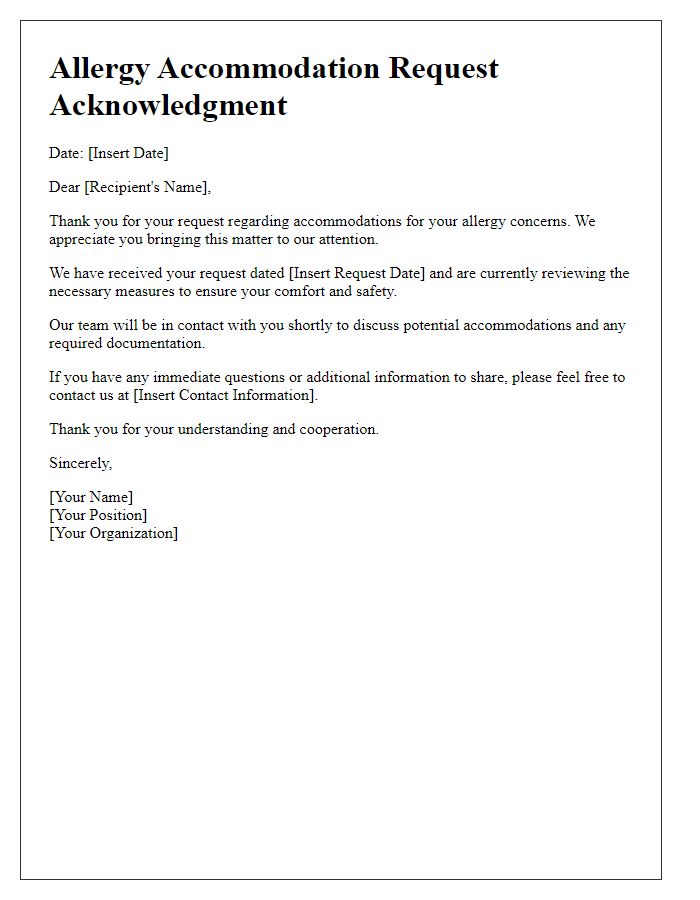
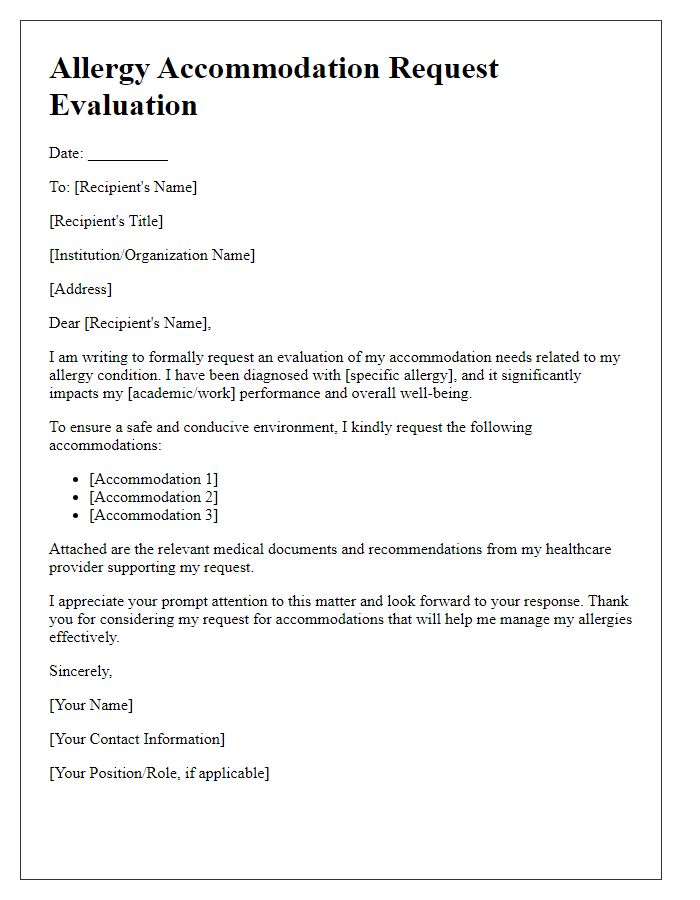
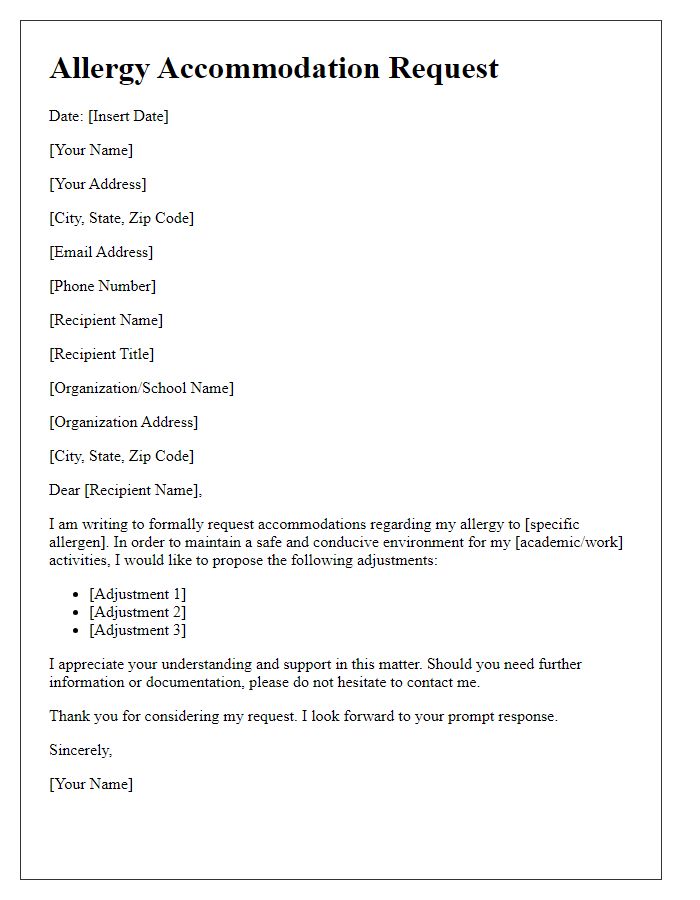
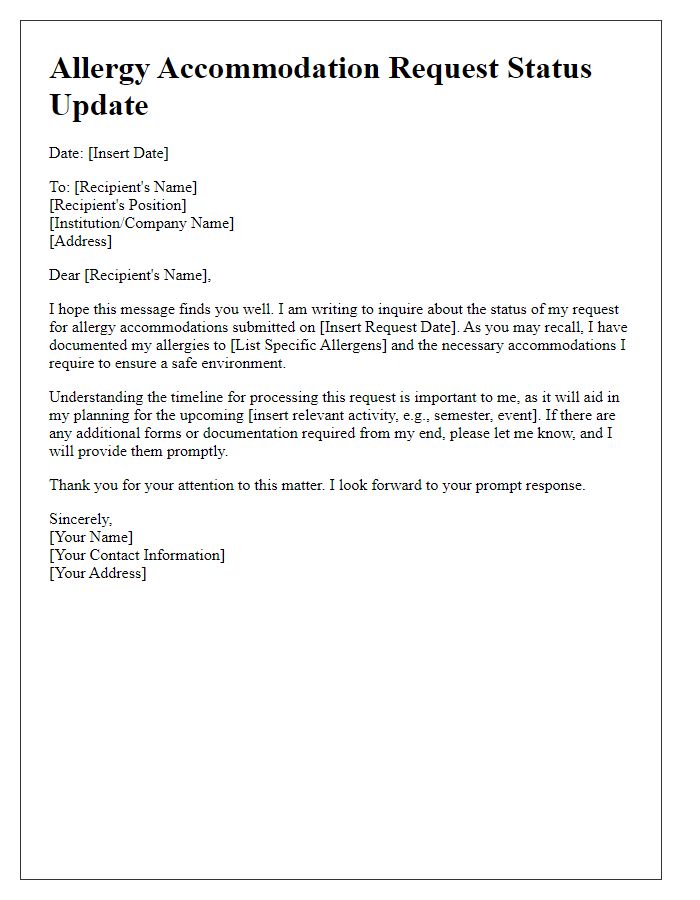
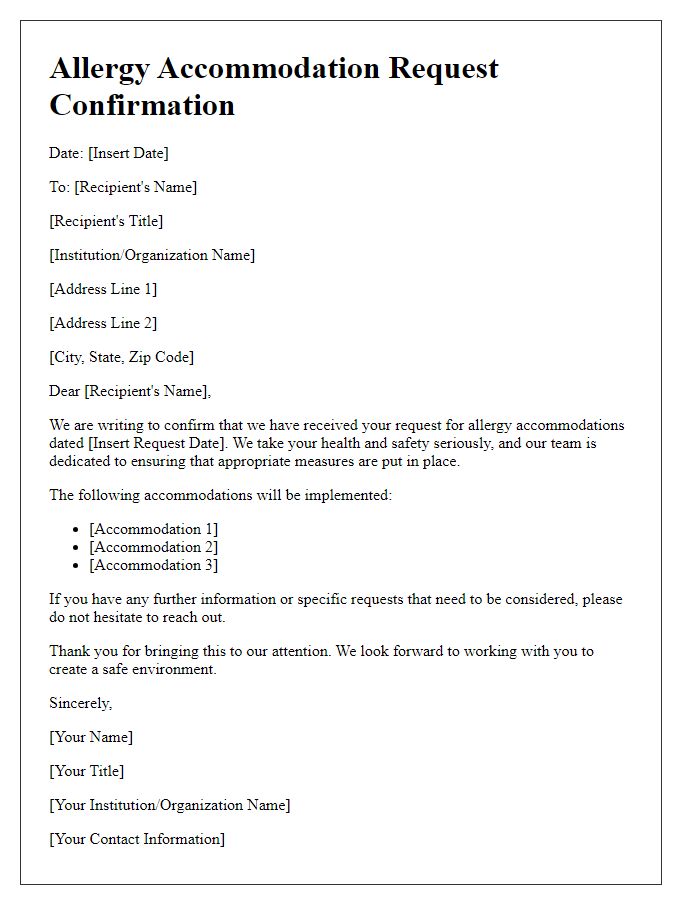
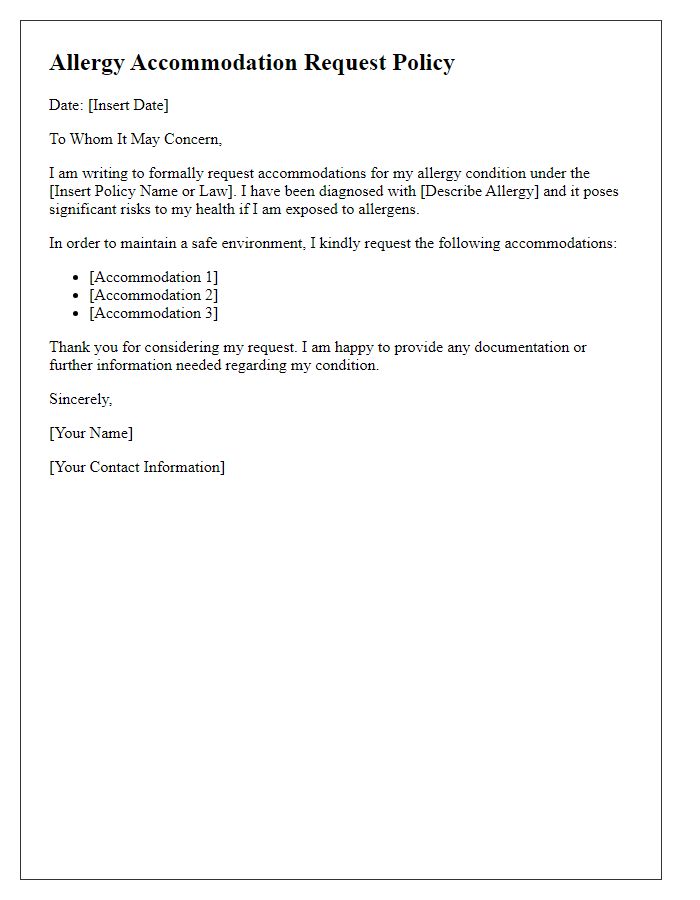

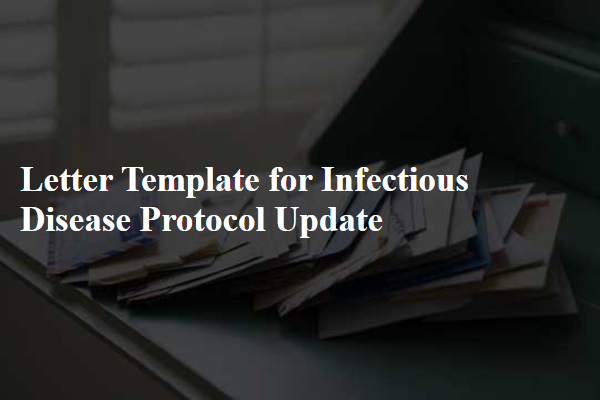
Comments